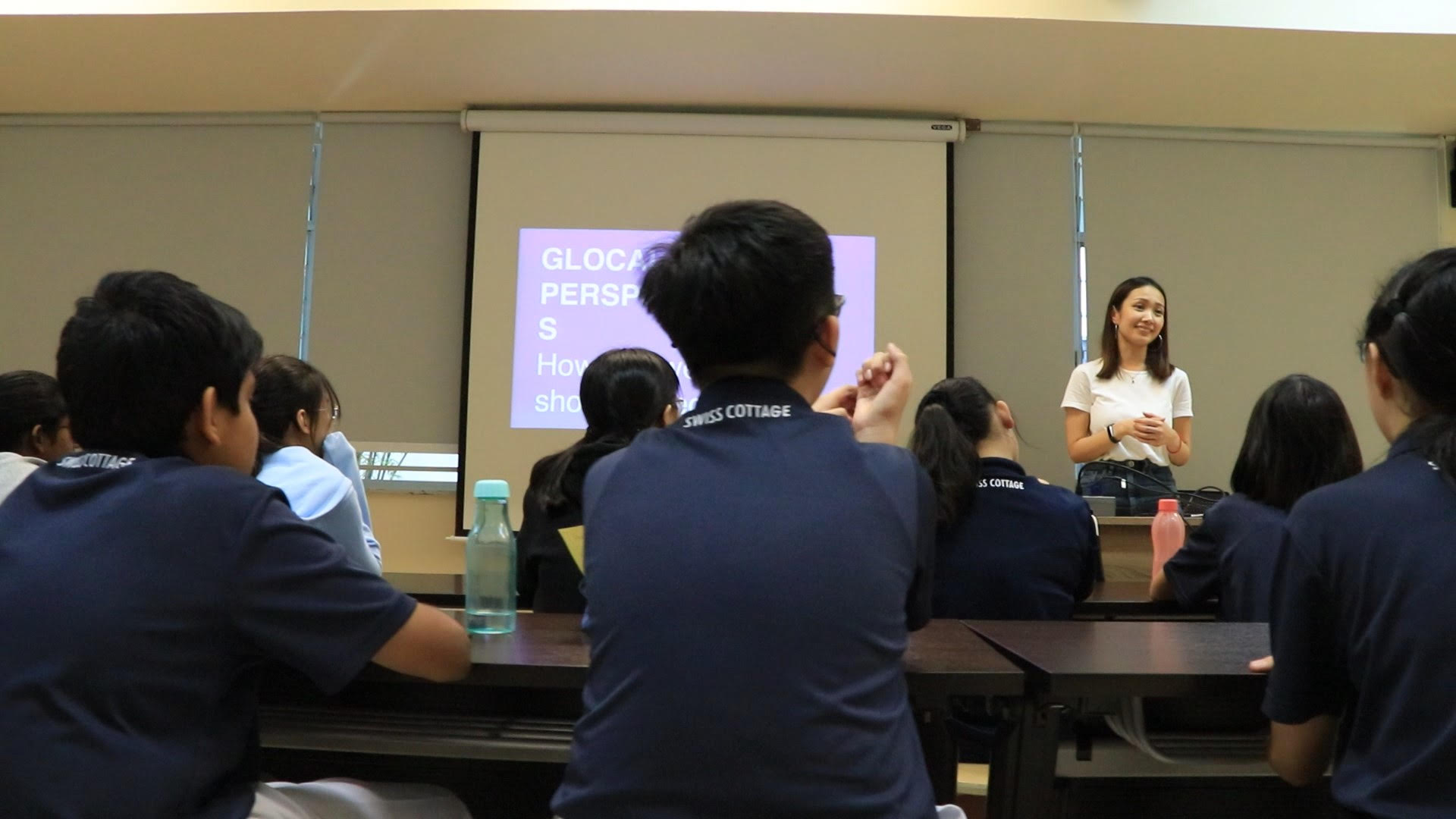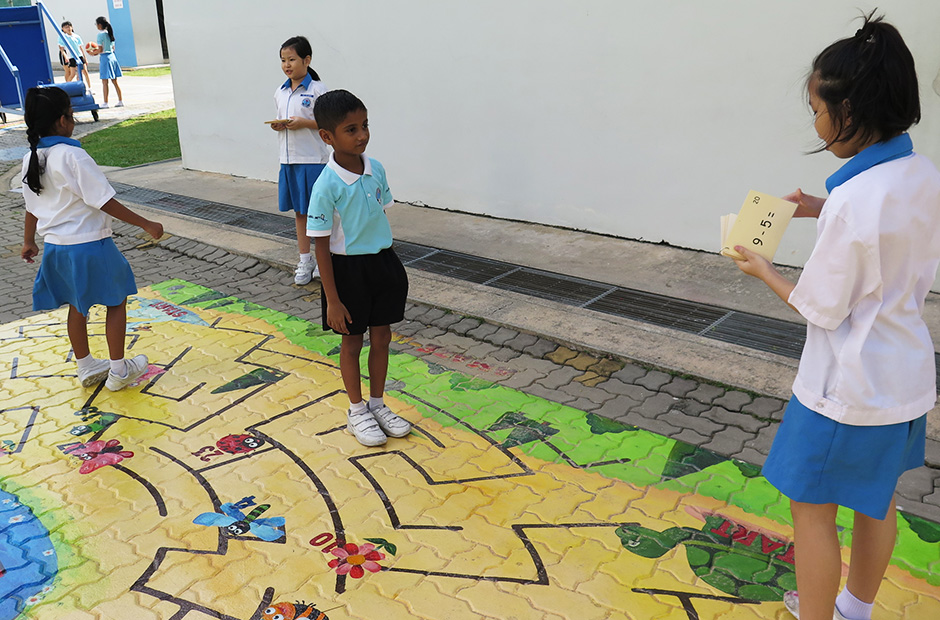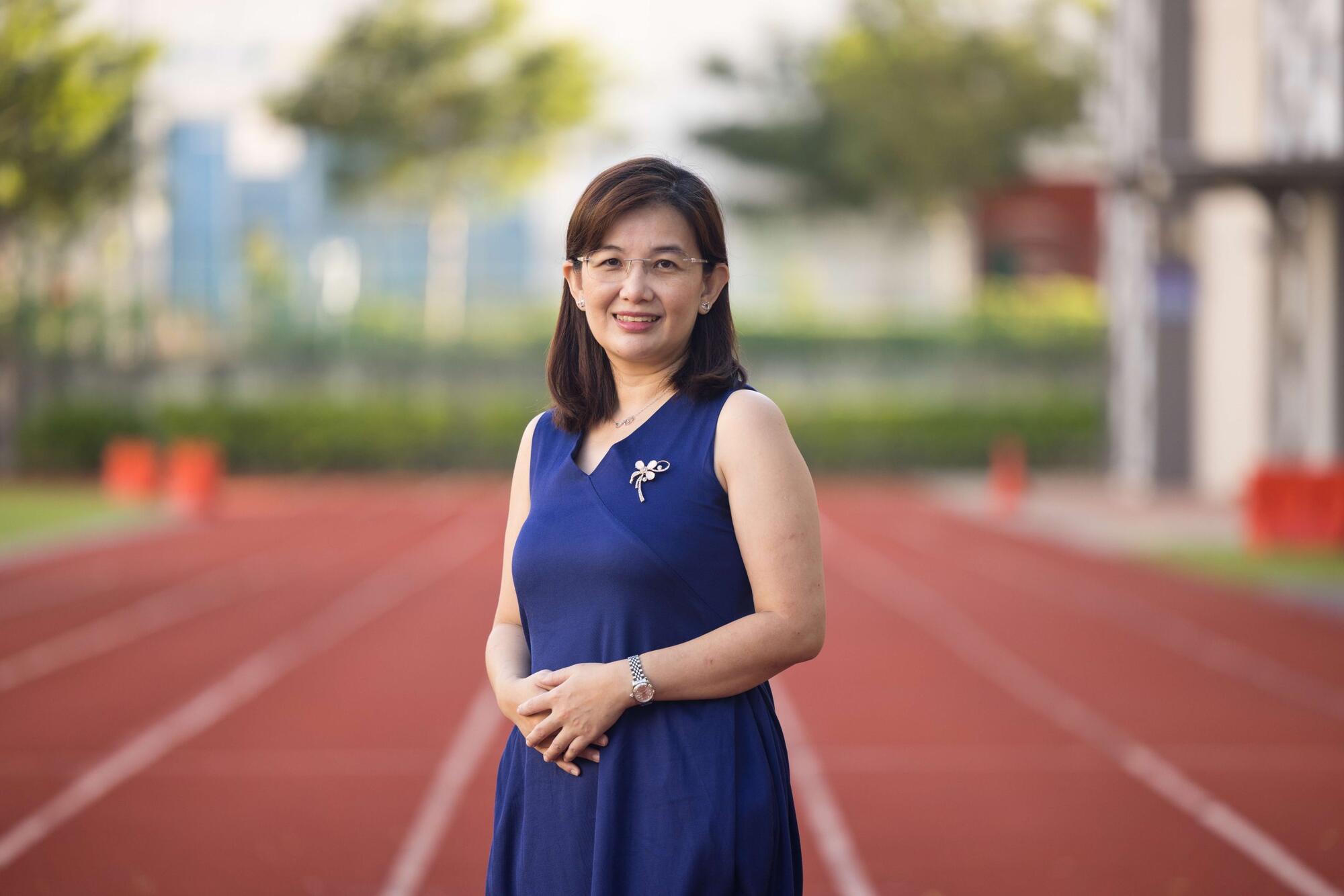Yong Min Hui Vicki, Swiss Cottage Secondary School, Outstanding Youth in Education Award 2020 Recipient
A Safe Space for Open Discussions
Some people feel that foreigners steal the jobs of Singaporeans. What do you think about this statement? I asked my Secondary Two class.
Instead of telling them the ‘correct’ answer, I get my students to look at different sides of the issues — they examine statistics and interview family members to hear different perspectives. They then present their analysis, drawing from facts, evidence and different views.
Such discussions take place in the Glocal Perspectives Programme (GPP), a distinctive programme that I lead in my school. All Secondary 1 and 2 students participate in this weekly programme. It aims to develop students who can take on global and local (i.e. glocal) perspectives. Broad themes include migrant societies, multiculturalism, changing family structures and the role of education in society.
To deepen my students’ understanding of a migrant worker’s life, my colleagues and I organised visits to migrant workers’ dormitories to give the students a first-hand look at their living conditions. They also heard stories about the experiences of migrant workers from the Voluntary Welfare Organisation staff. Through this experience, our students began to see migrant workers as fellow humans trying to make a living away from home.
GPP lessons also teach students important skills to navigate the real world. After discussing cases of racism and culturally insensitive behaviour around the world, I would take it a step further to talk about appropriate responses. Some of the questions posed to them include: when you receive a mean comment online, do you hit back angrily or educate tactfully and invite people to find out more about your cultural practices? They are taught the importance of responding positively, in person and online.
As the Subject Head for GPP, I help other teachers to be confident in teaching and facilitating discussions about social issues. My team and I often discuss the issues before going to class, so we can anticipate what students may ask. I also came up with discussion guides to facilitate meaningful conversations in class.
As teachers, we don’t always have all the answers. There were times when I acknowledged to my students that I did not know. I would then ask them to tell me what they think could be the answer, and we would find out together. This way, students would feel safe and empowered to share and ask questions. This attitude is key in driving this programme.
Helping Every Child Find His Voice
I take a different approach to my school’s “Talent Development Programme”.
Many students in the programme are already doing well academically. But among them, some are reserved or shy. They may be afraid to speak up.
As the teacher in charge of the programme, I want to create opportunities for these students to foster critical thinking, step out of their comfort zone and gain greater self-confidence.
Some activities include discussions, competitions and Model United Nations conferences, which test their general knowledge through quizzes, argumentative writing and debates. Students could choose to study an issue they are curious about. One week, we may be discussing cryptocurrency, and in the next, I could be listening to another group discuss the impact of modern black markets!
Some may even engage in a debate about something that sounds frivolous: “Should we allow extra-terrestrial beings to live on our planet?” But such a debate motion requires students to think about the idea of who is entitled to live on Earth, and the political and ethical issues involved. Exciting, isn’t it?
My biggest motivation in running this programme is seeing my students blossom into confident and articulate young men and women.
I had a student who was initially very quiet when I first invited her to join the programme. She didn’t like speaking up in front of others. When she was involved in a public presentation to talk about the potential of 3D printing technology, I met her frequently to help her practise. Slowly, she began to speak up, confidently. I was very proud of her when she eventually delivered her presentation smoothly.
I also received a letter from her on Teachers’ Day. She said: “I will always be grateful that you saw the potential in me when I was just a reserved Secondary One student. You pushed me to challenge my limits. Thank you for encouraging and empowering me to do things I never knew I could.” Those words alone cemented my belief in the work I do.
Finding Lessons in Every Challenge
Another joy I have as a teacher is working with my Form Class. To me, being a Form Teacher is a privilege. I cherish the daily interactions I have with them, and take these opportunities to shape my students’ beliefs in themselves and their character.
I plan Values-in-Action projects with my students because I see them as a platform that enhances my students’ understanding of the community and themselves. One memorable project I had with my Form Class was visiting the HCA Hospice Care. My students had done research on palliative care and carefully planned suitable activities for the patients, so they looked forward to the visit.
On that day itself, despite the students’ best efforts, things did not go smoothly. Some patients refused to participate. A patient suddenly started crying midway through the drawing activity. We were stunned. Later, we found out from the hospice staff that the patient felt a sudden sense of loss and hopelessness, triggered by memories of her family. My students naturally felt down at the end of the visit.
But situations where we had failed in have much to teach us as well. I reminded my students about this and talked about the areas in which we could have done better. We realised we needed to be more sensitive to others’ emotions. And we learned the importance of resilience to continue serving the community from the patients who appreciated our presence.
Developing a positive outlook in the face of challenge or failure — this is something that I as a teacher want to help my students do.I want to help them look past their weaknesses, and to focus on developing their strengths. This is a lesson I hope they will take with them throughout their life.






